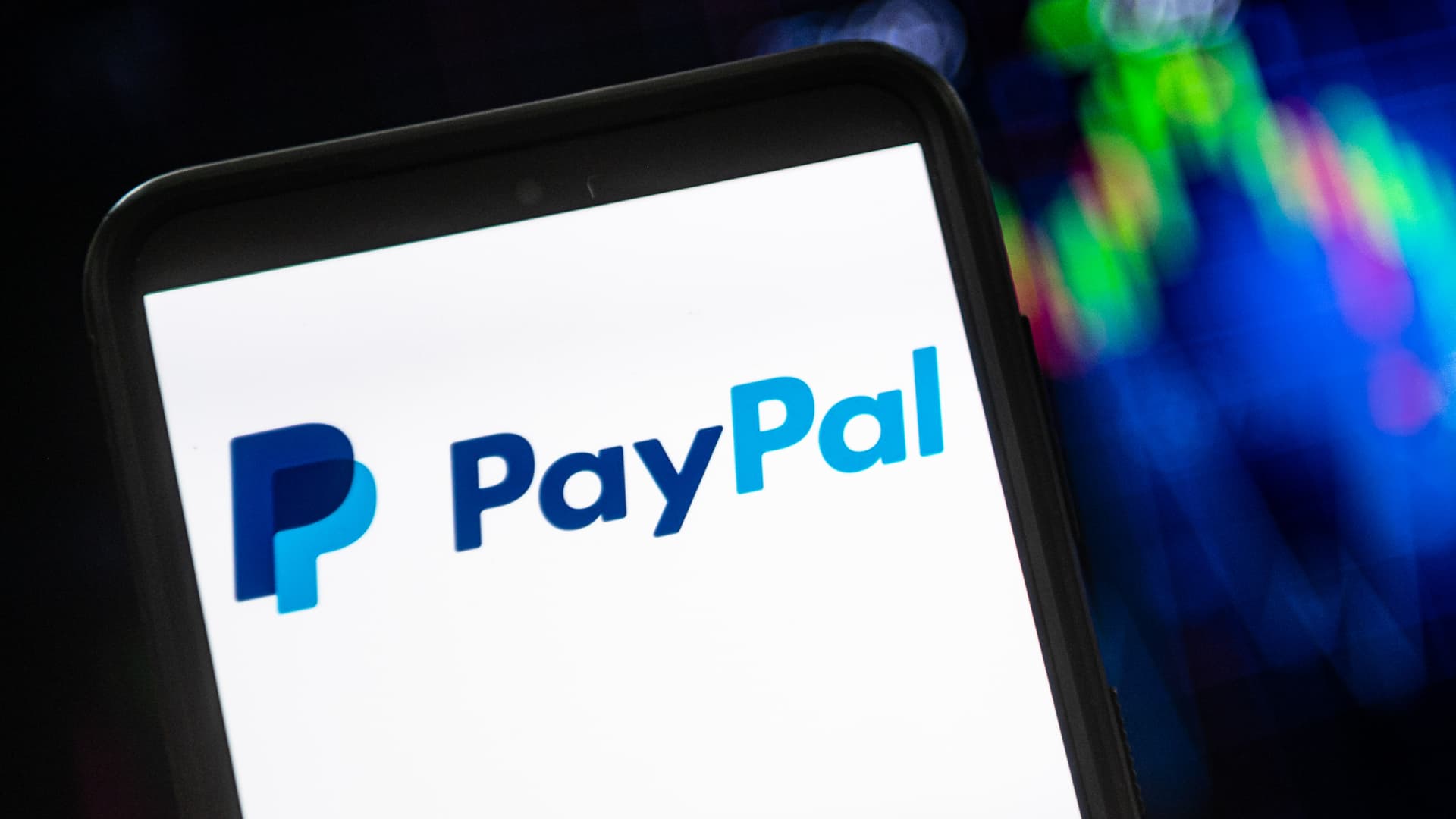A PayPal logo is seen displayed on a smartphone.
Sopa Images | Lightrocket | Getty Images
WASHINGTON — Money held in nonbank, peer-to-peer payment apps is not guaranteed for federal deposit insurance protection, which makes the funds more vulnerable, the Consumer Financial Protection Bureau warned Thursday.
The watchdog said the 85% of adults ages 18 to 29 in the U.S. who have used PayPal, Cash App, Zelle and other peer-to-peer apps would be in danger of losing their money if it was stored on one of those platforms and the companies failed. None of those platforms appear to be at risk of collapsing, but the CFPB highlighted the protection offered by deposit insurance after three regional banks collapsed since March.
The risks to user funds increase as the applications grow in popularity. More than three-quarters of U.S. adults have used a payment app, according to the Pew Research Center. Millennials made up the bulk of users in 2022 at 94%.
“Popular digital payment apps are increasingly used as substitutes for a traditional bank or credit union account but lack the same protections to ensure that funds are safe,” CFPB Director Rohit Chopra said.
CFPB is also monitoring whether tech companies adhere to fiscal safeguards as they expand into banking and payments, according to Chopra. Tesla mogul Elon Musk began exploring payment functions on Twitter soon after he took over the social media company last fall.
Peer-to-peer applications have proven lucrative. PayPal, the parent company of Venmo, reported $27.5 billion in revenue last year. Block, which owns Cash App, posted $17.5 billion in revenue last year.
The standards for storing consumer funds differ from company to company. Some invest the money in interest-earning loans and bonds instead of depositing into a traditional bank or credit union. This runs the risk of investment losses, interest rate changes, currency exchange rate fluctuations and liquidity issues, the CFPB said.
Other peer-to-peer companies, meanwhile, do not say where consumer money is held or invested.
Others claim to offer “pass-through” insurance that protects funds against the failure of the banking institution where the deposit is held, according to the CFPB. But the insurance is only provided under certain conditions and does not protect users’ money if the parent app collapses.
CFPB said Thursday it will continue coordinating with state and federal regulators to monitor progress on automated funds sweeping into insured banking accounts. Until then, app users must be proactive in moving money into an insured financial facility until a method is adopted, the agency said.
PayPal, Cash App and Zelle did not immediately respond to requests for comment.


